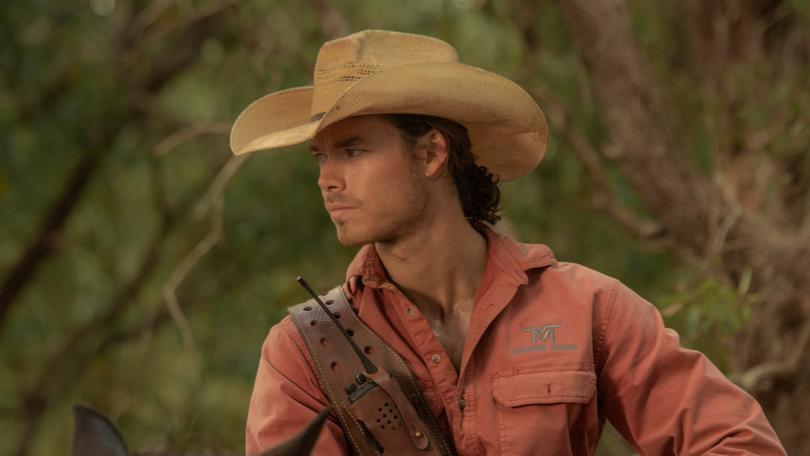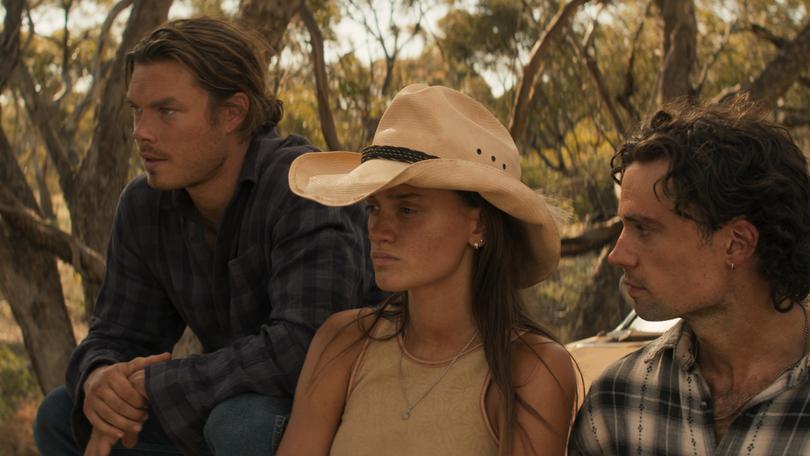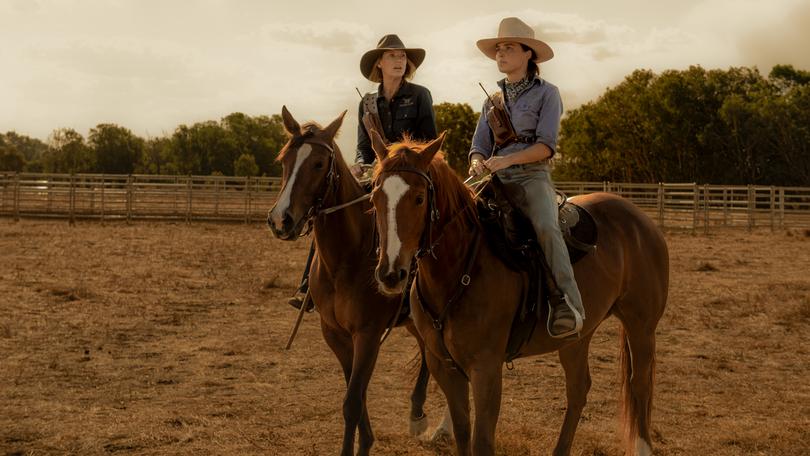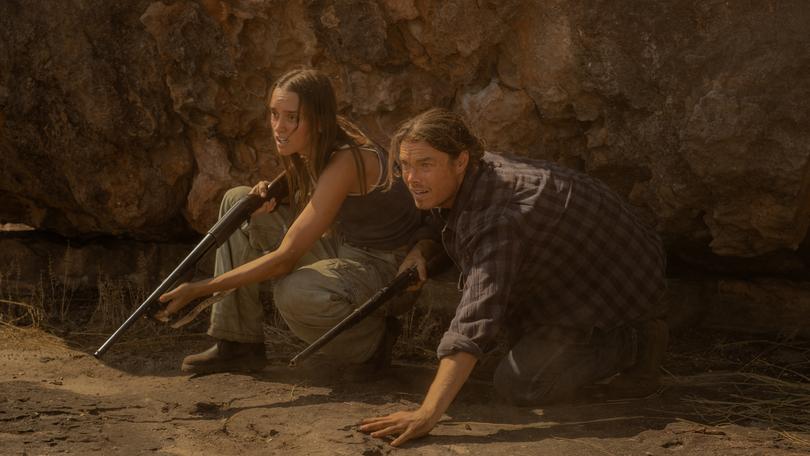Sam Corlett draws on Shakespeare and ‘rogue lads’ for Territory
Actor Sam Corlett draws on Shakespeare and cockroach-eating rascals for Australia’s answer to Succession.

The grandiosity of family feuds have a long history in arts and literature so while Netflix’s Australian series Territory might be set in the present day, its roots trace back to William Shakespeare and beyond.
From Succession, Dallas and Yellowstone to Empire, Arrested Development and The Crown, multigenerational family dysfunction makes for rich storytelling. No one quite knows how to exact pain as much as your own kin, sometimes intentional, sometimes not.
It’s why Shakespeare’s King Lear is still held up as the be-all-and-end-all of dynastic drama. But it’s another Shakespearean tragedy that actor Sam Corlett has in mind for his character in Territory — Henry IV.
Sign up to The Nightly's newsletters.
Get the first look at the digital newspaper, curated daily stories and breaking headlines delivered to your inbox.
By continuing you agree to our Terms and Privacy Policy.Corlett plays Marshall Lawson, the reluctant prodigal son who returns after the death of his uncle Daniel sets off a succession struggle for the world’s largest cattle station, owned by the Lawsons for generations.
Marshall is the grandson of Colin (Robert Taylor), the unfeeling traditionalist who refuses to hide his disdain for his remaining family, alcoholic son Graham (Michael Dorman), daughter-in-law Emily (Anna Torv), granddaughter Susie (Philippa Northeast) and Marshall.

The Lawsons are hanging onto Marianne Station by a thread, laden with debt and being circled by rival landowners, mining interests and Indigenous communities who can all smell blood in the water.
Marshall, seemingly, doesn’t want any of it.
In fact, he ran away from his responsibilities and expectations and chose a nomadic life.
“He didn’t feel fit for it or he didn’t like what (that life) made of people,” Corlett told The Nightly.
“Kind of like Henry IV in Shakespeare, he sought solace and camaraderie among the outcasts of society.”
That Corlett sees Prince Hal in Marshall is not surprising when you consider Territory’s heightened family dramas, rooted in the burdens of hereditary privilege, exacted through vengeance and violence, both physical and emotional.
The relationships between Marshall and his father Graham, and then Graham and his dad Colin, are uneasy bonds and hint at the damage wrought by trying to live up to a specific definition of manhood.
“Working with Michael Dorman was really special because we knew what this story was going to say for Australian masculinity, and that’s pretty reflective of a lot of (father-and-son) relationships,” Corlett said.
Questions around Australian masculinity was present during the shoot, which was on location on a cattle station in the Northern Territory, where, towards the end of filming, the weather was so hot and steamy, Corlett would wake up at 4.30am to go for a run, because even attempting to at 7am would be too much.
“When the wet season came in, the nurses on set were doubled, the Hydralyte was doubled and there were a couple of faintings here and there.”

The oppressiveness was helpful to get into character, but it did mean that between “cut” and “action”, the actors would flock to a piece of shade and be still.
“Because running around with guns and on horses can be quite energy-consuming. A lot of the days, we ended up zapped.
“There’s a harshness and hardness, but what was a beautiful surprise is the romance.”
Corlett grew up on the coast in New South Wales, a world away from the deserts of the NT, but he heard about his dad’s adventures jackaroo-ing as a young man.
The stories of rolling cars for fun had a lawlessness to them, but also that romance he remembered and then experienced for himself.
“Time seems to go slower up there, and a lot of the lads up there had such great love for what they did, and that was really special,” he said. Those “lads” were also rogues.
Corlett recalled, “Our first little social gathering, (co-star) Kylah (Day) was trying to edge out a cockroach that was on the floor. And one of the lads who works on the station stomped on it, then another stomped on it and a third lad stomped on it.
“Then the first lad picked it up and skolled it down with a beer and threw up. Then the third lad threw up and they were all just laughing. That’s just kind of what they do. Kylah just stood there, shocked.”

There’s an element of performativity to those “lads” but Corlett said it was more like pushing each other on to see how rogue you can go, it’s what connects them.
That encounter also gave Corlett clear ideas of how Marshall and his merry band of vagabonds would see themselves. It’s the territory; there’s no other place like it.
Marshall may not exactly fit into the mould of the cockroach-ingesting lads, nor is he the tough grazier his grandfather wants him to be. What that conflict is, is an Australian man struggling with the expectations of Australian masculinity.
Maybe there’s a parallel between Marshall and Corlett, whose best known work has been in overseas productions including Vikings: Valhalla and Chilling Adventures of Sabrina.
Corlett came home to work on Territory but he wasn’t reluctant like Marshall. Rather than a feuding clan, what he found was a resurgent purpose in telling Australian stories for audiences such as his family and friends.
“I want to see more of our culture on screen, in its multifaceted nature. I want that to be a more common experience for us.”
Territory is streaming on Netflix from October 24

